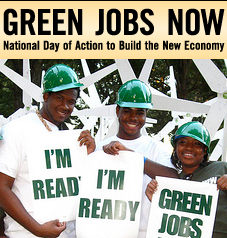Wal-Mart in China: Going Green Despite the Downturn
Wal-Mart’s push to make its stores and suppliers in China more environmentally-friendly cuts to the heart of one of the big debates these days: Is a “green economy” the antidote to or a potential victim of the economic crisis?
Wal-Mart’s push to make its stores and suppliers in China more environmentally-friendly cuts to the heart of one of the big debates these days: Is a “green economy” the antidote to or a potential victim of the economic crisis?
Wal-Mart’s drive to make its Bejing stores more energy-efficient and to force local suppliers to comply with stricter environmental standards means additional short-term costs. Wal-Mart had to special order the new, efficient lights for its Chinese superstores, for instance.
But Wal-Mart has always preached the bottom-line benefits of its green conversion, arguing that energy efficiency and streamlined production and shipping mean lower costs in the long run. That’s the pitch Wal-Mart president and chief executive H. Lee Scott is trying out on recalcitrant Chinese suppliers already thumped by rising costs and closing factories. From the WSJ:
“Some people’s primary concern will be what will this do to cost?” Mr. Scott said. “But when we rolled out our sustainability initiative at Wal-Mart we found that eliminating waste, downsizing packaging and improving transportation fuel efficiency led to a whole lot of savings.”
Broadly speaking, that’s the same argument made by green-economy disciples, from Tom Friedman to Van Jones. Investing today in more efficient energy, alternative fuels, and modern infrastructure will rejuvenate the economy in the short term and make it a lot leaner in the long run.
But the sticking point seems to be the same one that has long held back mass-market adoption of better lightbulbs, home solar panels, or hybrid cars. Upfront costs are upfront and unavoidable; the promise of potential savings down the road doesn’t resonate with consumers—or small-scale Wal-Mart suppliers—the same way it does with big corporations, especially when the economic crisis eats into savings and disposable income.
So that’s the big question. Wal-Mart can afford to make investments now to clean up its act down the road. Can the rest of the world?


